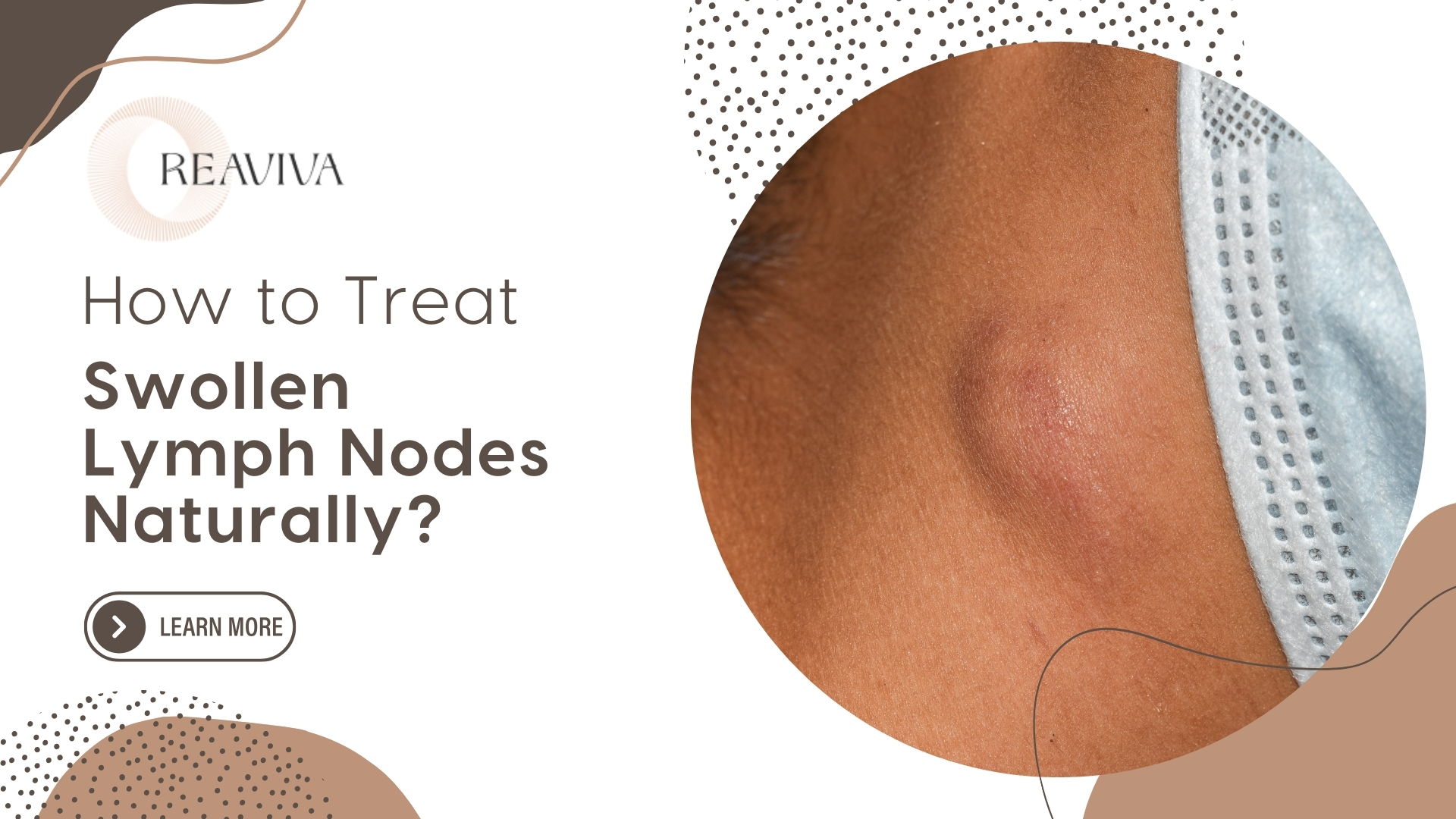Table of Contents
Swollen lymph nodes might seem scary at first, but they’re actually a sign that your body is working hard to protect you. Think of lymph nodes as tiny, bean-shaped filters placed throughout your body, especially around your neck, armpits, and groin. Their main job is to trap harmful germs like bacteria and viruses, stopping them from spreading.
When lymph nodes swell, medically known as lymphadenopathy, it’s often a sign of your immune system responding effectively to an infection or inflammation nearby. This happens because lymph nodes become gathering points for immune cells like lymphocytes, which multiply rapidly to combat the invading germs. As a result, these nodes enlarge, becoming tender or noticeable, indicating an active defense process.
It’s important to recognize that while swelling often resolves naturally once the underlying issue such as a common cold or minor injury is addressed, monitoring swollen lymph nodes is essential. Persistent swelling without clear cause or accompanied by symptoms like prolonged fever, unusual pain, or rapid growth of the node could signal more serious health concerns. In such scenarios, seeking medical advice becomes essential to rule out conditions that require specific treatment.
Knowing what lymph nodes are, why they swell, and when to get help can keep you healthy and worry-free.
What Causes Swollen Lymph Nodes?
Swollen lymph nodes might seem concerning at first, but they’re usually just a sign that your immune system is actively protecting you. Think of lymph nodes as tiny checkpoints scattered throughout your body, designed to trap germs and harmful substances like bacteria and viruses.
Here’s why lymph nodes commonly become swollen:
- Infections: The most frequent reason is infection. This includes common issues like colds, flu, ear infections, strep throat, or even skin and tooth infections. When your body detects germs, lymph nodes fill with immune cells to fight them off, causing swelling.
- Viral Causes: Specific viruses such as influenza, the common cold, mononucleosis (“mono”), HIV and herpes simplex virus, and even herpes can trigger swelling. More recently, swollen lymph nodes have also been noticed after COVID-19 infections and vaccinations, which typically resolve naturally.
- Bacterial Causes: Bacterial infections like strep throat, tuberculosis, Syphilis and Gonorrhea, dental abscesses, or skin infections like impetigo can cause significant swelling as your lymph nodes respond to these threats.
- Medications and Vaccinations: Some medications, especially certain seizure drugs, and vaccines including COVID-19 shots can temporarily cause lymph nodes to swell as your immune system responds.
- Immune System Disorders: Conditions like lupus or rheumatoid arthritis can cause lymph nodes to swell due to ongoing inflammation throughout the body.
- Serious Conditions (Rare but Important): While uncommon, cancers like lymphoma, leukemia, or other cancers that spread to lymph nodes can also cause persistent swelling.
When should you worry about swollen lymph nodes?
- Nodes that don’t shrink after several weeks
- Nodes that feel hard, fixed, or continue growing rapidly
- Persistent fever, night sweats, weight loss, or severe fatigue
- Swelling accompanied by unexplained symptoms like prolonged pain
Most swollen lymph nodes linked to common infections usually resolve naturally. Natural remedies and home care often help when swelling is mild and clearly connected to common infections. However, if swelling persists, worsens, or is associated with concerning symptoms, it’s crucial to see a doctor promptly. Early evaluation ensures proper diagnosis and effective treatment, helping you stay healthy and safe.
11 Natural Remedies for Swollen Lymph Nodes at Home
Swollen lymph nodes often mean your body is actively fighting an infection or inflammation. While these nodes usually shrink back to normal as your health improves, some natural remedies can help relieve discomfort, support the healing process, and encourage a quicker recovery. Here’s a practical guide to natural remedies you can easily follow at home:
Warm Compresses
Warm compresses are among the simplest ways to reduce lymph node swelling and discomfort. Applying gentle heat boosts blood circulation, helping the body clear trapped fluids and speeding up recovery.
Dip a clean cloth in warm water, wring out excess water, and gently place it over the swollen area for 10-15 minutes. Do this several times each day for best results.
A gentle massage can effectively encourage lymph fluid to drain, helping reduce swelling and inflammation around the lymph nodes.
With your fingertips, gently massage around the swollen lymph nodes using slow, circular motions, directing the strokes towards your heart. Spend about 5-10 minutes each session, once or twice daily.
Stay Hydrated
Drinking plenty of fluids is crucial, as proper hydration helps flush out toxins and supports your lymphatic system.
Drink 8-10 glasses of water each day, or enjoy warm herbal teas, broths, and clear fluids regularly throughout the day.
Rest and Recovery
Giving your body adequate rest and sleep strengthens your immune response, helping to heal swollen lymph nodes faster.
Aim for at least 7-9 hours of restful sleep each night and take breaks or naps during the day if you’re feeling particularly tired.
Anti-Inflammatory Foods
Adding anti-inflammatory foods to your diet can naturally ease swelling and boost your immune system.
Foods to include like Turmeric, ginger, garlic, leafy greens (spinach, kale), berries (blueberries, strawberries), and omega-3-rich foods (salmon, walnuts). Incorporate these foods into your meals daily, like adding turmeric or ginger to tea, smoothies, or soups.
Herbal Teas
Herbal teas like ginger, echinacea, and chamomile have properties that support immune function and reduce inflammation.
Drink 1-2 cups of herbal tea daily to gain these benefits.
Essential Oils
Essential oils such as tea tree, lavender, and eucalyptus contain natural anti-inflammatory and antimicrobial properties.
Dilute 2-3 drops of essential oil in a tablespoon of carrier oil (like coconut or almond oil). Apply gently to the swollen area after conducting a patch test to ensure there’s no skin sensitivity.
Apple Cider Vinegar
Apple cider vinegar has been traditionally used for its antibacterial and detoxifying effects.
Mix 1-2 tablespoons of apple cider vinegar in a glass of water and drink once daily, or soak a cloth in diluted apple cider vinegar and apply to the area for 10 minutes.
Garlic
Garlic boosts immune function due to its antimicrobial properties, helping fight off infections that cause lymph node swelling.
Add fresh garlic to your meals or consume garlic supplements after consulting your healthcare provider.
Castor Oil
Castor oil packs can encourage lymphatic flow and reduce inflammation effectively.
Soak a clean cloth in warm castor oil, apply it over the swollen lymph nodes, and cover with a towel for 30-60 minutes. Rinse afterward.
Avoid Irritants and Allergens
Reducing exposure to allergens, harsh chemicals, or irritants such as smoke can prevent further irritation and inflammation. Limit contact with known allergens, pollutants, and if applicable, consider quitting smoking.
While these natural remedies are typically safe and effective for mild to moderate swelling, it’s important to seek medical advice if your lymph nodes remain swollen beyond two weeks, rapidly increase in size, or if you experience other concerning symptoms like fever, severe fatigue, or unexpected weight loss.
When to Seek Medical Help for Swollen Lymph Nodes?
Swollen lymph nodes often get better on their own as your body fights off infections, but it’s important to know when home care isn’t enough and medical attention is necessary. Recognizing the signs that need professional help can make a significant difference in your health and peace of mind.
When Swelling Doesn't Go Away
If your lymph nodes remain swollen for more than two weeks without any improvement, it’s a good idea to get checked by a healthcare provider. Nodes that continue to enlarge or start appearing in new areas (such as spreading from the neck to the armpits or groin) require evaluation to understand the underlying cause.
Serious Symptoms to Watch For
Certain symptoms accompanying swollen lymph nodes should prompt immediate medical consultation:
- High fever (above 101°F or 38.3°C) lasting more than a few days
- Severe pain or tenderness around the lymph nodes
- Skin changes such as redness, warmth, or discharge of pus, indicating a potential bacterial infection needing antibiotic treatment
- Night sweats or unexplained weight loss, as these could signal more serious conditions like lymphoma or tuberculosis
Node Characteristics That Need Attention
Pay close attention to the physical traits of swollen lymph nodes:
- Hard, fixed, or irregularly shaped nodes: These might indicate more serious conditions, including cancer.
- Rapid growth: Nodes that quickly increase in size (doubling in size within days) require prompt medical evaluation.
- Painless swelling: Swollen lymph nodes that are painless but persistently enlarge can sometimes indicate chronic conditions or malignancies.
Swelling in Specific Areas
Swelling in certain regions can be particularly concerning:
- Collarbone (supraclavicular area) swelling might suggest more serious underlying conditions like breast or lung cancer.
- Multiple regions swelling simultaneously (e.g., neck, armpits, and groin) could indicate systemic infections or autoimmune diseases.
Additional Symptoms to Watch
Seek immediate help if swollen lymph nodes accompany:
- Difficulty swallowing or breathing, which could indicate airway compression from swollen neck nodes.
- Persistent sore throat, unexplained rash, or extreme fatigue, possibly linked to infections or autoimmune conditions.
- Frequent infections or easy bruising, which might point to blood disorders or weakened immunity.
Special Considerations in Children
In children, consult a doctor if lymph nodes:
- Are significantly swollen (larger than a pea or 1 cm).
- Occur with high fever, extreme irritability, or refusal to eat or drink.
Risk Factors and Medical History
If you have a history of cancer, autoimmune disorders like lupus, or HIV/AIDS, swollen lymph nodes require earlier medical attention. Similarly, recent animal scratches or bites, or travel to regions known for Lyme disease, are additional reasons to seek evaluation promptly.
Urgent Medical Situations
Seek emergency care immediately if you experience:
- Sudden, severe swelling causing trouble breathing.
- Severe headache, confusion, or stiff neck, which could indicate meningitis.
Remember, while most swollen lymph nodes are harmless, erring on the side of caution ensures timely diagnosis and proper treatment, potentially preventing serious complications.














